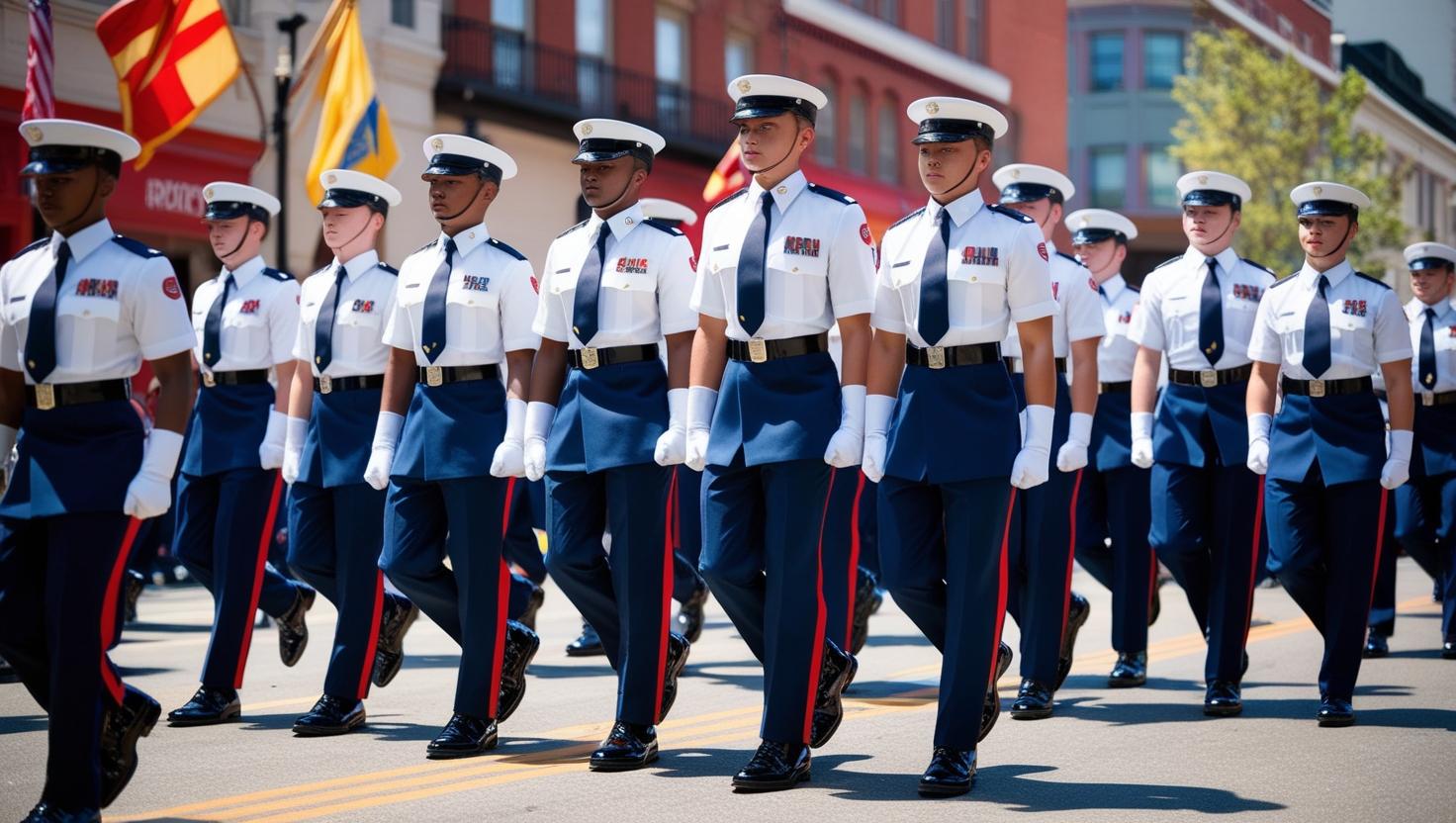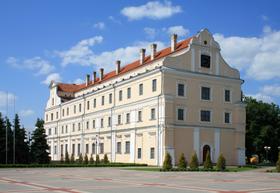5 Common Myths About Military Schools
Military schools seem to go in and out of favor with the general public.
- Perhaps that has to do with some rather common misconceptions about what military schools are and how they operate.
- The truth is that America's military prep schools carry on a proud tradition of academic and personal excellence, which has withstood the assaults of negative media attention and changing education trends.

Let's debunk five common misconceptions about military schools.
1. They are retirement outposts for retired officers.
Hollywood loves to portray military schools as retirement outposts for disgruntled officers with enormous grudges against just about everything and egos to match. (Think Taps with Timothy Hutton and George C. Scott.)
- The truth is that most military schools have a headmaster who is styled a commandant or superintendent according to military nomenclature.
- Becoming an administrator in a military school is a logical next career step for an officer who has retired from active service, usually in his '40s or '50s. Their egos? Most of them are pretty average.
- Their job is to run the school, hire the best faculty they can find, and manage the finances. That's what any headmaster does.
Running any private school these days requires immense amounts of administrative savvy combined with a deft touch for fund-raising and the diplomatic skills of a career diplomat.
- Being ahead of school is a multi-faceted job.
- Being the head of a military school requires all these skills, together with military experience and background.
2. All that military schools teach is military stuff.
The truth is that military schools are simply private schools with a particular emphasis.
- They are no more off the beaten educational path than, say, Christian or Muslim schools are.
- Put another way, they combine academics with military training.
Most parents expect their son or daughter to graduate from a private school and attend college.
- So, whether you send your daughter to a military school or a prep school for high school, the objective is the same.
- Only the enrichment focus of the schools will be different.
- Instead of having 10 hours a week of religious education as you'd find in a parochial school, you will have 10 hours of military history and related subjects.
A military school education embraces structure, teamwork, and a solid focus on self-discipline.
- And they are not just for men either.
- Several schools are co-educational.
- Technology plays a major role in military schools, reflecting the enormous changes technology has wrought across the entire defense spectrum in America today.
Military school graduates have gone on to be our nation's leaders. They have paid the price for defending our freedom.
Proudly you gathered, rank on rank, to war
As who had heard God’s message from afar;
All you had hoped for, all you had, you gave,
To save mankind—yourselves you scorned to save.Stanza II from O Valiant Hearts by John Stanhope Arkwright

3. Military school graduates only go into military service.
Some do. Some don't.
- Many students and their parents see a military high school as a logical first step to military service at some point. But it is just that: the first step.
- Going to college is the second step.
- Military service is the third step.
Military schools can help your child develop good habits of discipline and structure.
- Just about anything worth doing well requires lots of discipline.
- Discipline takes hard work, persistence, stamina, and time.
- Children need to learn how to work hard, be persistent, and develop stamina and patience.
- A military school education can help provide the structure to accomplish those aims.
In an era when instant gratification seems endemic, good old-fashioned discipline lays a solid foundation for success in adult life.
- Discipline evolves into a pattern of self-discipline.
- After several years of this kind of training, your child will know what she has to do to accomplish her objectives.
- Military schools serve up discipline as regularly as they serve breakfast.
This video offers an overview of Fork Union Military School in Fork Union, Virginia.
4. Military schools are for troubled students.
Military schools are most definitely not alternative schools.
- Alternative schools are specialized schools catering to children with emotional and other difficulties.
- Their programs focus on remediation for the most part.
- Military schools, on the other hand, provide a military-style structure to everyday life combined with comprehensive academic, athletic, and extracurricular programs.
- Many parents and students find that appealing and therefore attend a military school.
The graduates of the 42 military schools in the U.S. matriculate to colleges and universities at home and abroad.
- Academic training and good results are the primary objectives of military schools. Always have been. Always will be.
- Most military schools think of themselves as college preparatory schools. That’s how important academics are.
- Strong leaders need solid academic training as well. Military schools do their very best to provide that.
Knowing that your child will receive a comprehensive education in academics, sports, and extracurricular activities, as well as solid military training, is, in my opinion, the most important benefit a military school offers.
- No more worry about planning all that activity and making it happen.
- The school does it as part of its daily, ongoing program. Seamlessly. Professionally. Effectively.
Private schools aim to educate the whole child. Education is not just academics; it is important, though those may be.
- Education also involves teaching children to get along with each other, to respect views that differ from theirs, and to be an effective part of a team.
- Because private school classes are small, typically 12-16 students, your child will receive the personalized attention she deserves.
- The athletics and extracurricular activities combine with military training to develop your daughter's abilities and personality to the fullest extent possible.
And finally, you must remember that you chose the school, and the school chose you.
- Both parties mutually agreed to this partnership.
- There's no passive acceptance factor here.
- You didn't have to send your child to a school simply because you live within school district boundaries.
- You wanted your child to attend that specific private school. That school wanted her to attend.
This video overviews Army and Navy Academy, Carlsbad, California.
5. Going to a military school guarantees you a place in one of the service academies.
Going to a military school and doing extraordinarily well in every aspect of your life and work there will help. However, the key to getting into one of the service academies is getting nominated by your congressman and meeting the academy's admission requirements.
Many military schools offer JROTC or Junior Regular Officer Training Corps.
This is a Federal program sponsored by the United States Army. The Army cannot recruit high school students.
- So, it uses the JROTC program to expose young people to the possibilities and potential of military service with the hope that some of them might choose to become part of the armed forces later in life.
- Needless to say, military schools are committed to the success of their graduates.
- A military school makes perfect sense if a military career is part of your child’s plan.
Service to the country is a high-minded concept.
Military schools get to the heart of the concept of community service and other programs that teach their students compassion and concern for the welfare of others.
- Service to the country has kept our nation free for hundreds of years.
- Patriotism and love of our nation are part of the DNA of any military school. Your child will benefit from that as well.
Attending a military school and doing well academically will improve your chances of being accepted at one of the service academies. But it is, after all, the first step in a much longer process.
Conclusion
Military schools are more than just uniforms and drills—they foster discipline, leadership, and academic success. By debunking these myths, we hope to provide a clearer picture of the opportunities they offer. If you're considering a military school or want to learn more, explore the full article and share your thoughts in the comments!
Questions. Contact us on Facebook and Instagram. @boardingschoolreview
#MilitarySchools #EducationMyths #PrivateSchools #AcademicExcellence #StudentDiscipline












